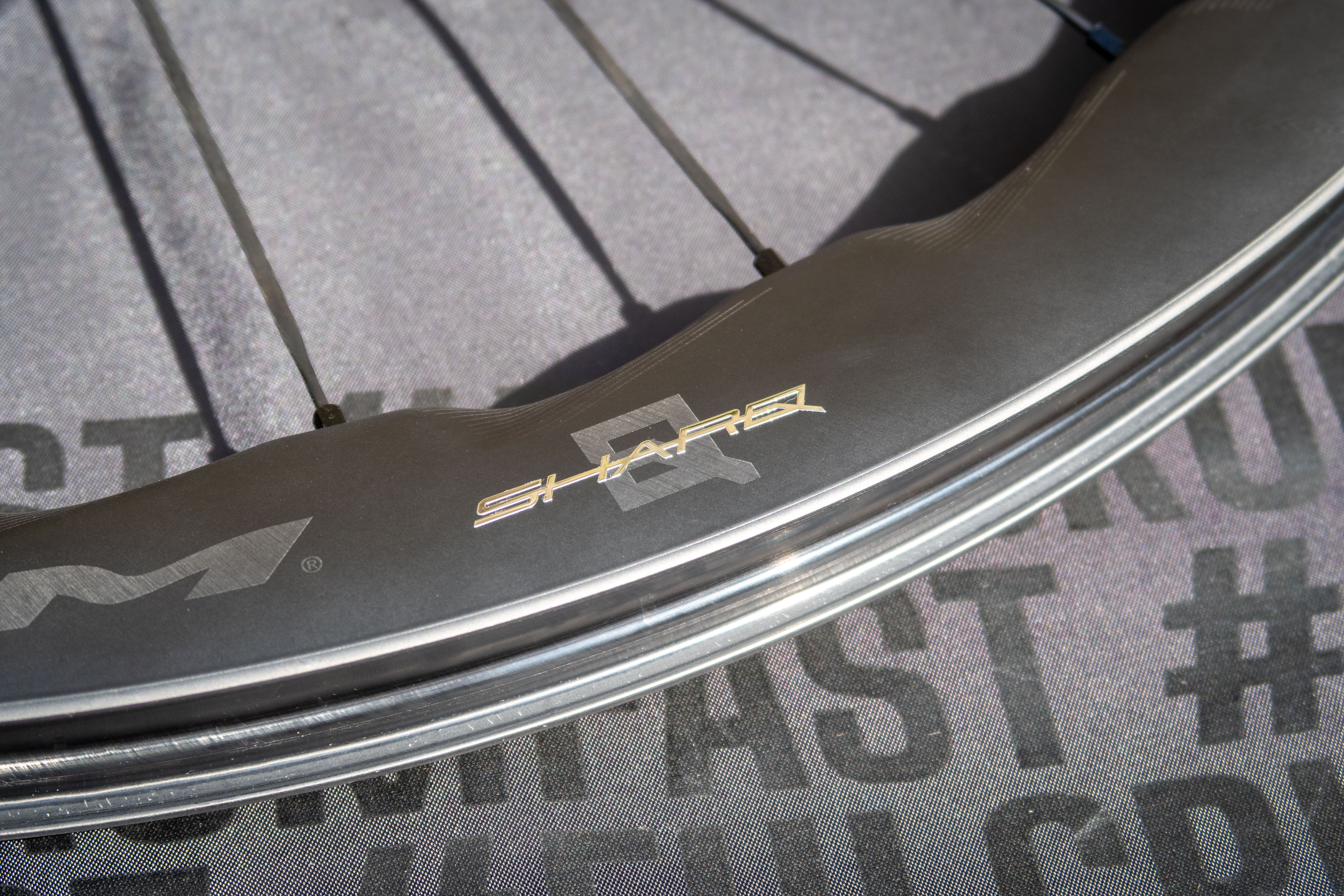
All-road wheels are nothing new, and we’ve seen both Zipp and Princeton test the waters with wavy wheelsets in the past – most notably Zipp with its NSW range and Princeton with pretty much every wheel in its lineup.
The evocatively named Sharq – think speed, menace, bite – is, however, a double-first for Fulcrum. The Sharq sits between the brand’s road Speed and gravel Rapid Red product categories while borrowing inspiration from its aero Wind line too. It’s the first time Fulcrum has produced an all-road wheel, let alone an aero one with a squiggly rim.
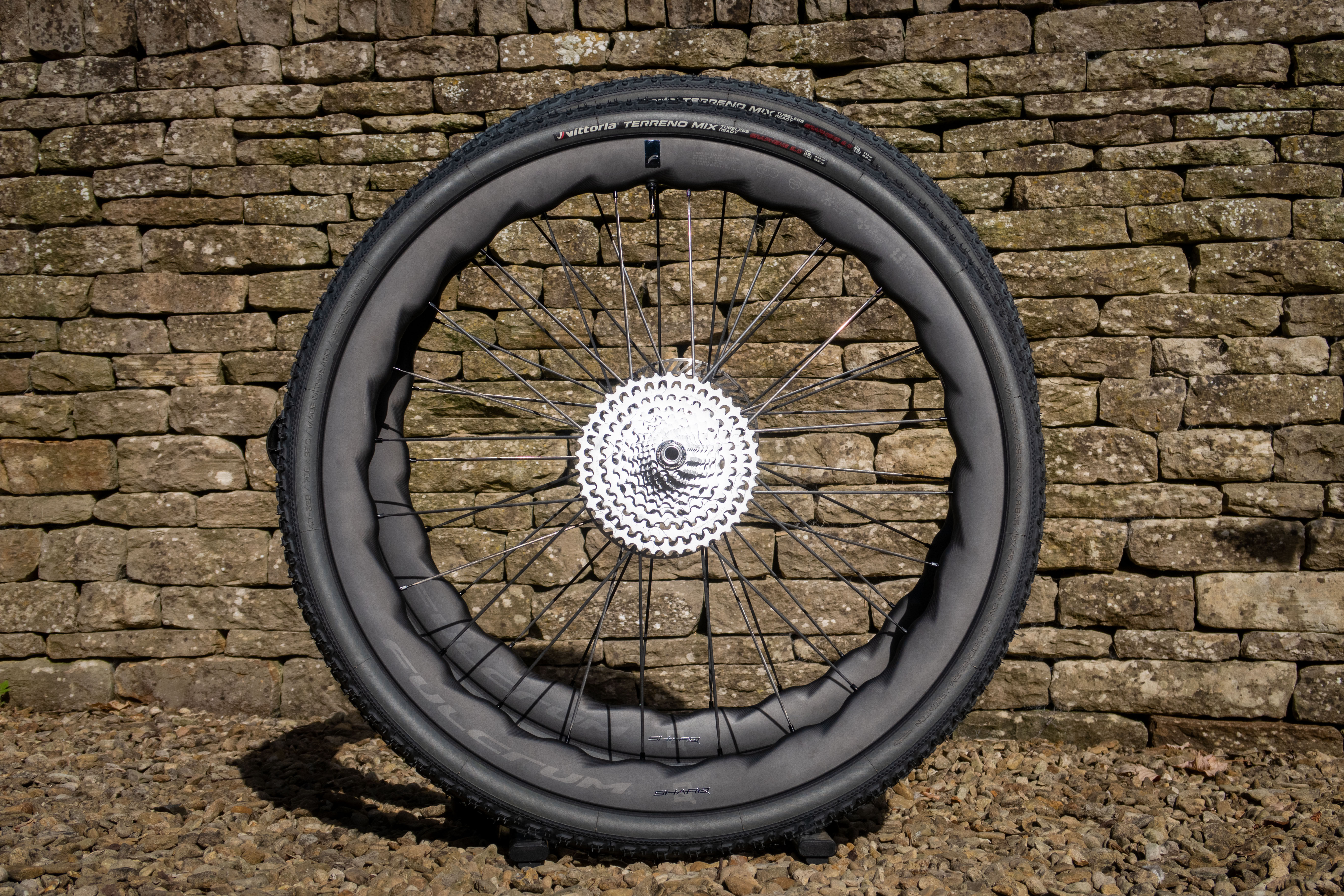
It's about time too. Gravel may have stolen all the sales headlines over the past few years, but the truth is that many of us spend most of our time riding broken road surfaces and well-groomed tracks.
Recent launches by the likes of Ribble, with its unambiguously named Allroad range, have seen endurance road bikes evolve into machines with wider tyre clearance that can tackle a variety of uneven, if non-technical, surfaces. This is exactly the territory the Sharq has been developed for – rapid rides down wind-blown, pothole-pocked rural lanes, fire tracks and fast gravel. The fun stuff.
Wave hello to the build
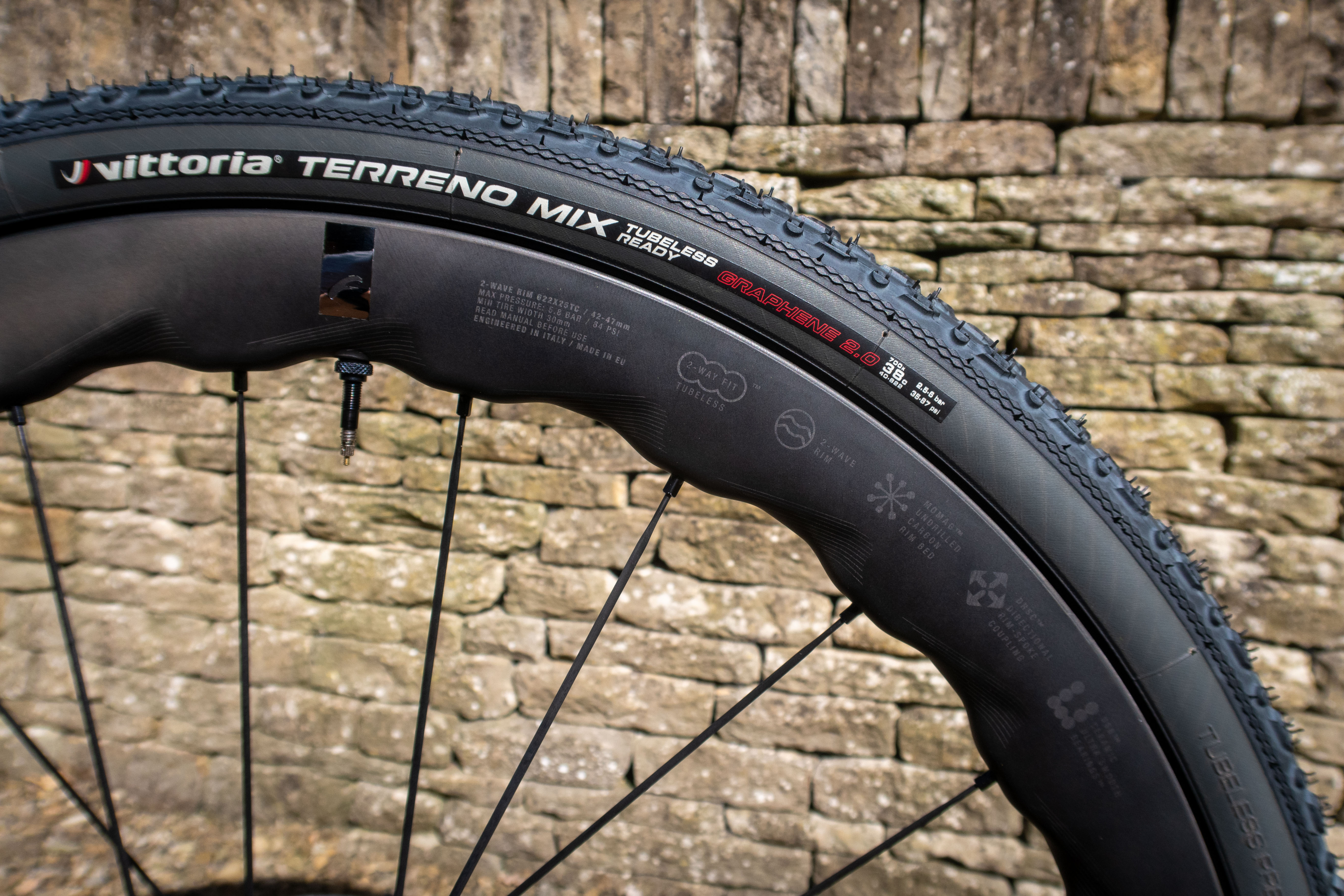
It’s pure ego, but I’ll readily admit that the appearance of these wheels is a huge part of their appeal. They’re jaw-droppingly gorgeous, with their soft undulations, etched decals and shiny silver Sharq logos. But that circle of shark-fin-like protuberances is there for performance, not showboating.
Fulcrum says that the aero, wavy rim is 21% more stable in side winds from 0° to 10° and up to 30% steadier between 10° and 20°, compared to a more typical rim profile of a similar depth. Rim height for the Sharq varies from 42mm in the troughs to a sizeable 47mm at the nipple holes. Their side-wind resisting quality is, for the most part, due to the rim’s curious profile, which is symmetrical at the peaks, morphing organically to asymmetrical in the valleys. Fulcrum calls this profile 2-Wave.
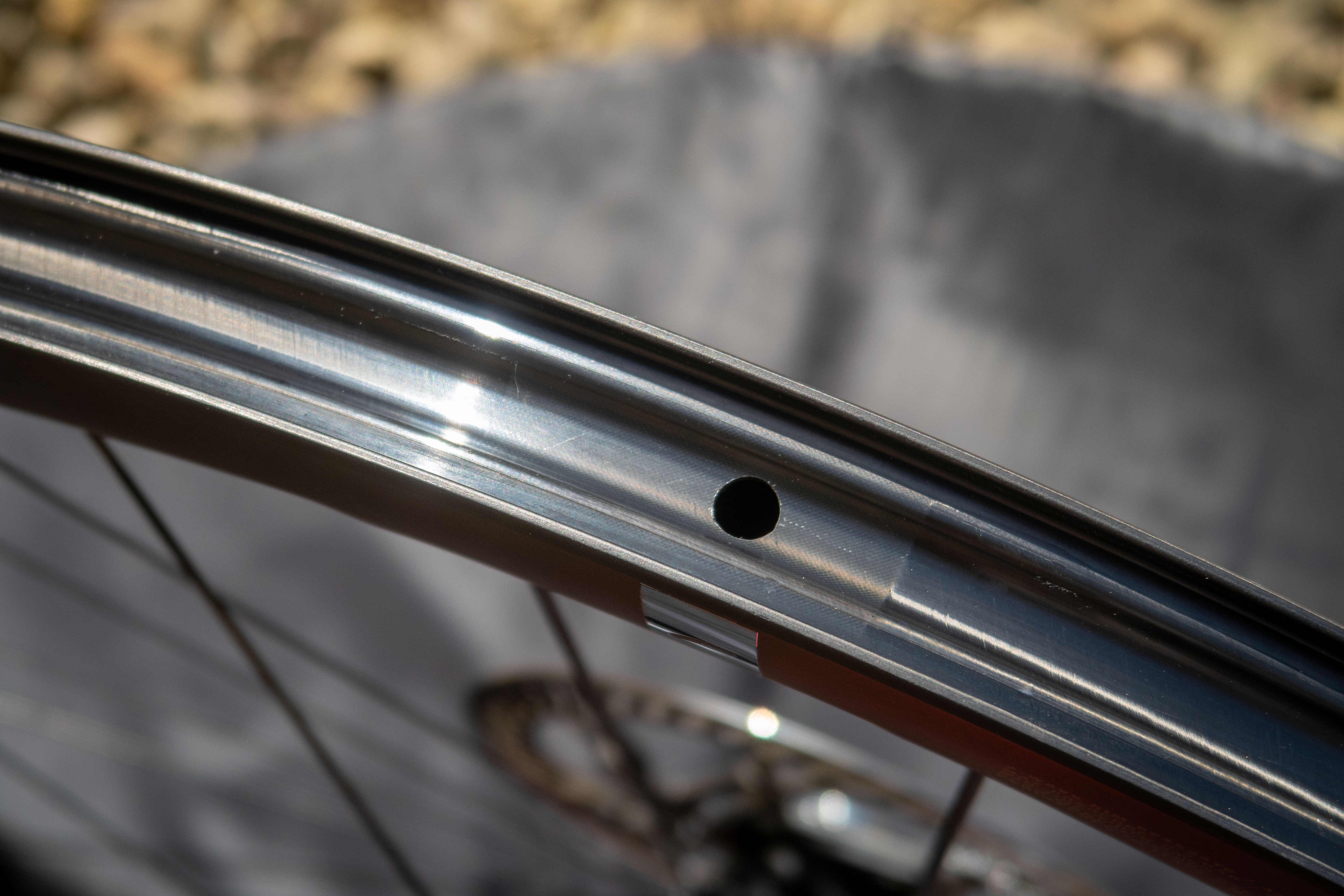
The rim bed has an inner width of 25mm, which precludes the use of anything less than a 30mm tyre, but that’s a characteristic that perfectly suits modern all-road bikes. Fulcrum says the rim is optimised for up to 42mm rubber, so if your riding is biased towards chunkier gravel, you’re covered too. The rims are compatible with both tubes and tubeless setups, and feature mini-hooks for 'maximum safety'. Those are Fulcrum's words, not ours, and a possible swipe at Zipp.
The new stainless steel aero ‘A3RO’ spokes were developed specifically for the Sharq, and Fulcrum has them locked in place at the hubs, so they’re permanently aligned. Measuring a full 3mm across the blade, the spokes don’t touch, which may help to keep tension in check and will certainly keep noise down. If there’s one thing that’s sure to trigger my latent OCD, it’s the irritating chatter and pinging of spokes rubbing together on a long ride.
Compatible with both tubes and tubeless setups, they feature mini-hooks for 'maximum safety'.
Each wheel has a complement of 24 spokes, laced in a two-to-one formation. This places the largest number of spokes on the side of the wheel that’s going to be subject to the most forces. For the front wheel, this is the left side to support the disc brake, whereas at the back it’s the righthand side to compensate for power put through the drivetrain. For optimal aerodynamics, spokes are laced radial on the side least subject to forces and three-cross on the other for strength and stiffness.
Hubs feature a traditional cup and cone build, loaded with Fulcrum’s USB (Ultra Smooth Bearings) ceramic bearings. There’s an easily accessible pre-load adjustment ring for immediate fine-tuning, and long-term maintenance should be straightforward enough.
The rims share the same silky matt sheen as seen and felt on many of Fulcrum’s recent carbon wheels. The brand uses a manufacturing technique it calls DIMF (Direct Inmold Matt Finish), which, as the name suggests, provides a near-flawless surface finish straight from the mold, without the need for further finishing or painting.
The total system weight limit for the Sharq wheelset is a generous (for a performance wheel) 120kg, which opens up the opportunity for bike packing if you’re a lighter rider.
The ride
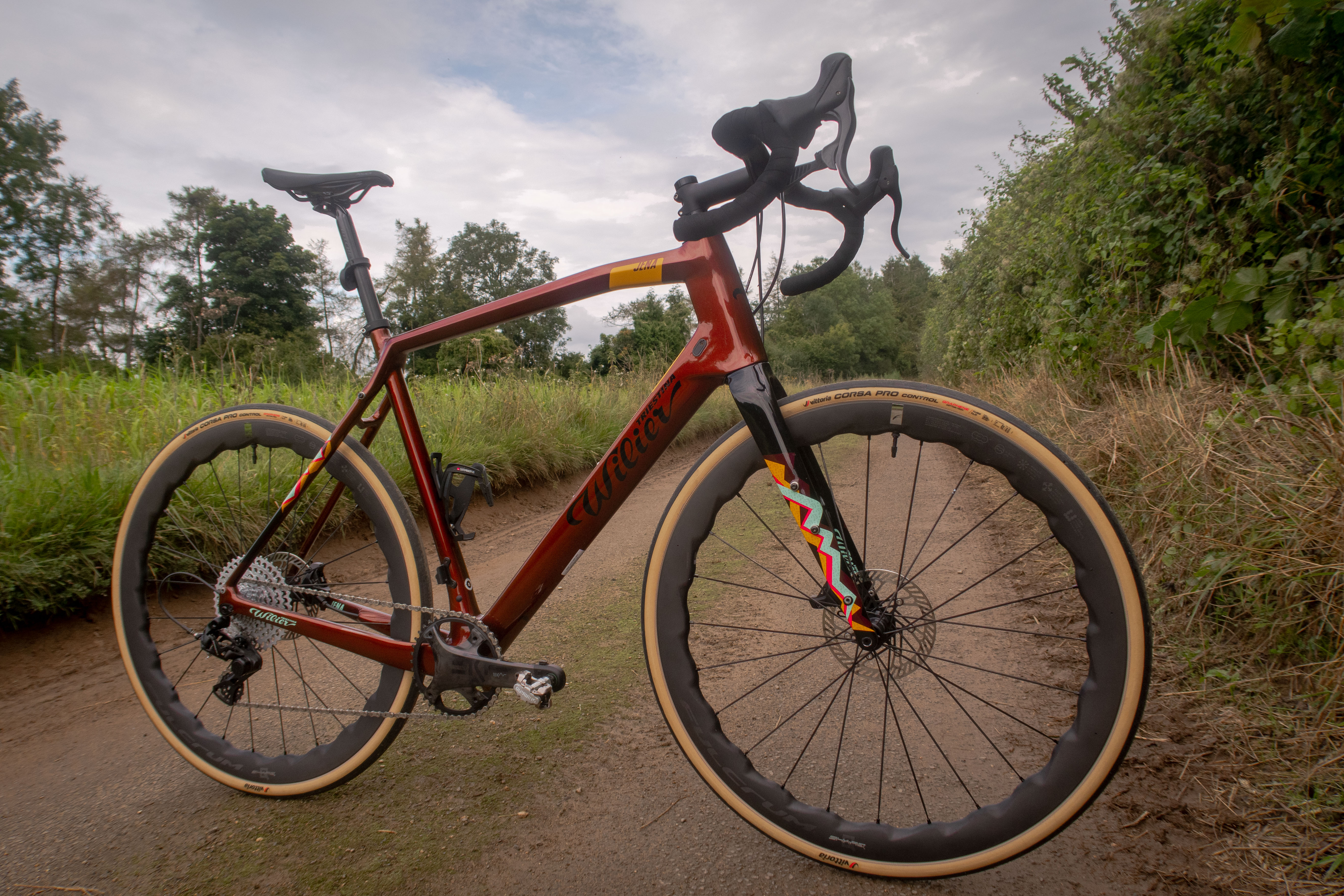
I rode our Sharq review set bolted to my Wilier Jena gravel/endurance bike. Initially, I fitted 38mm Vittoria Terreno Mix tyres, but soon swapped these out for a pair of faster 32mm Vittoria Corsa Controls, purely because they better suit my road-biased riding. Both sets of tyres went on tubeless using just my thumbs and seated effortlessly with a track pump. The process was so easy, I could barely believe it. I’m sure the lack of rim tape – the Sharq’s rim bridge isn’t drilled – really helped here.
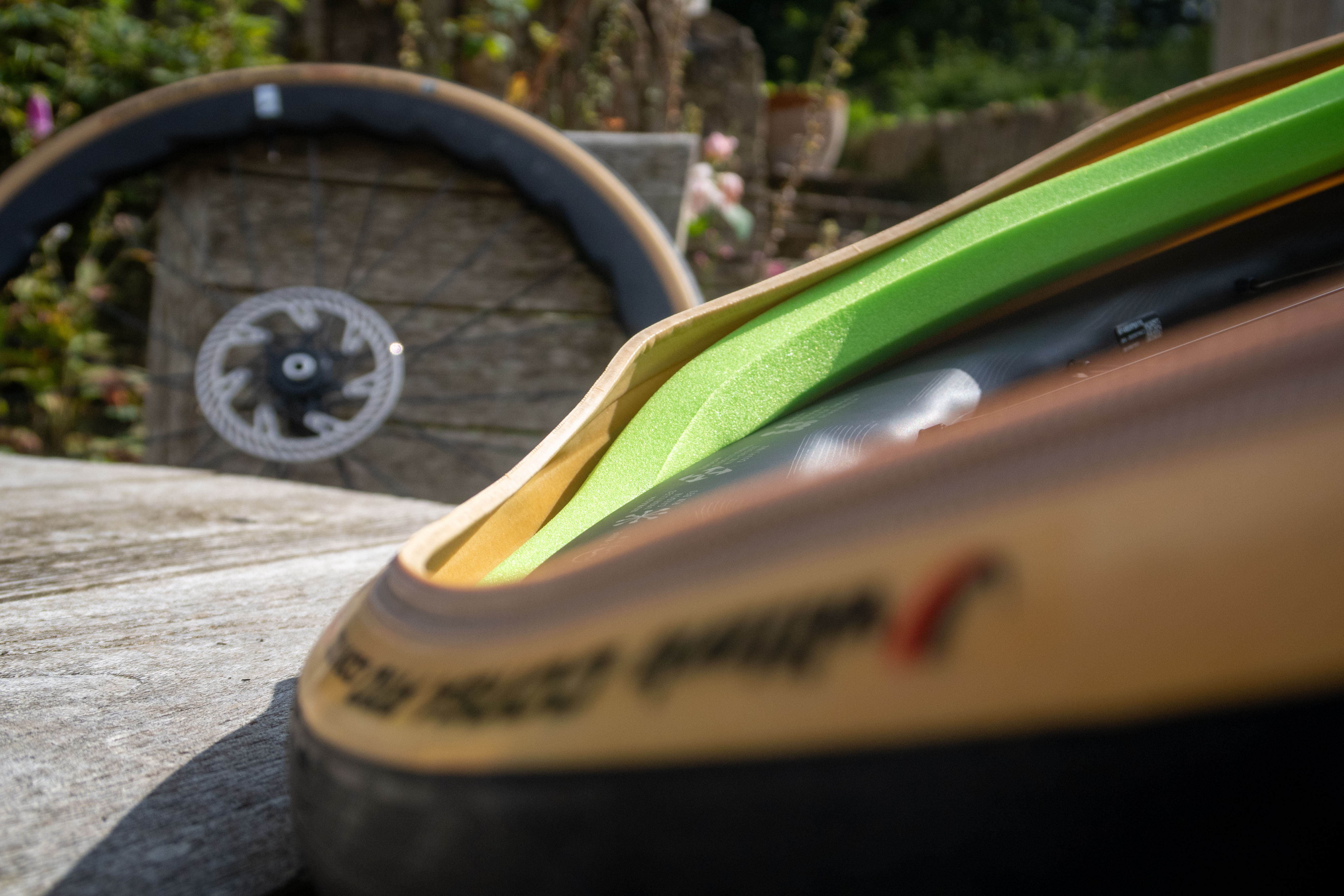
My scales read 1,484g against the quoted 1,440g, but that’s with a Campagnolo N3W freewheel body fitted. That’s a good weight for a relatively deep set of wheels. During the review period, I had the opportunity to ride out on a set of Miche Kleos RD 36 road climbing wheels, which are similarly priced but weigh only 50g less. I’ve also recently clocked hundreds of kilometres on a set of Mavic Cosmic SL 40 all-road wheels, which cost £800 less but weigh 160g more.
The Miches are sublime and the Cosmics great value, but I’d take the Fulcrums over either. The Sharqs roll very smoothly on their ceramic bearings and feel uncharacteristically agile and responsive for wheels of this depth – not far off the Miches in this respect.
At the same time, they were significantly less troubled by side winds than the Mavics. I regularly ride a few fast long descents on local, narrow hedge-lined lanes that are pretty sheltered until you zip past the occasional five-bar gate. Then momentarily, with no hedge for protection, you feel the wind’s full force, which can knock easily you sideways. I swear I can hear Zephyrus, the Greek god of the west wind, screaming ‘gotcha!’
Of course, in these conditions, the whole bike and rider act like a sail but there’s noticeably less front wheel tug with the Sharq’s fitted.
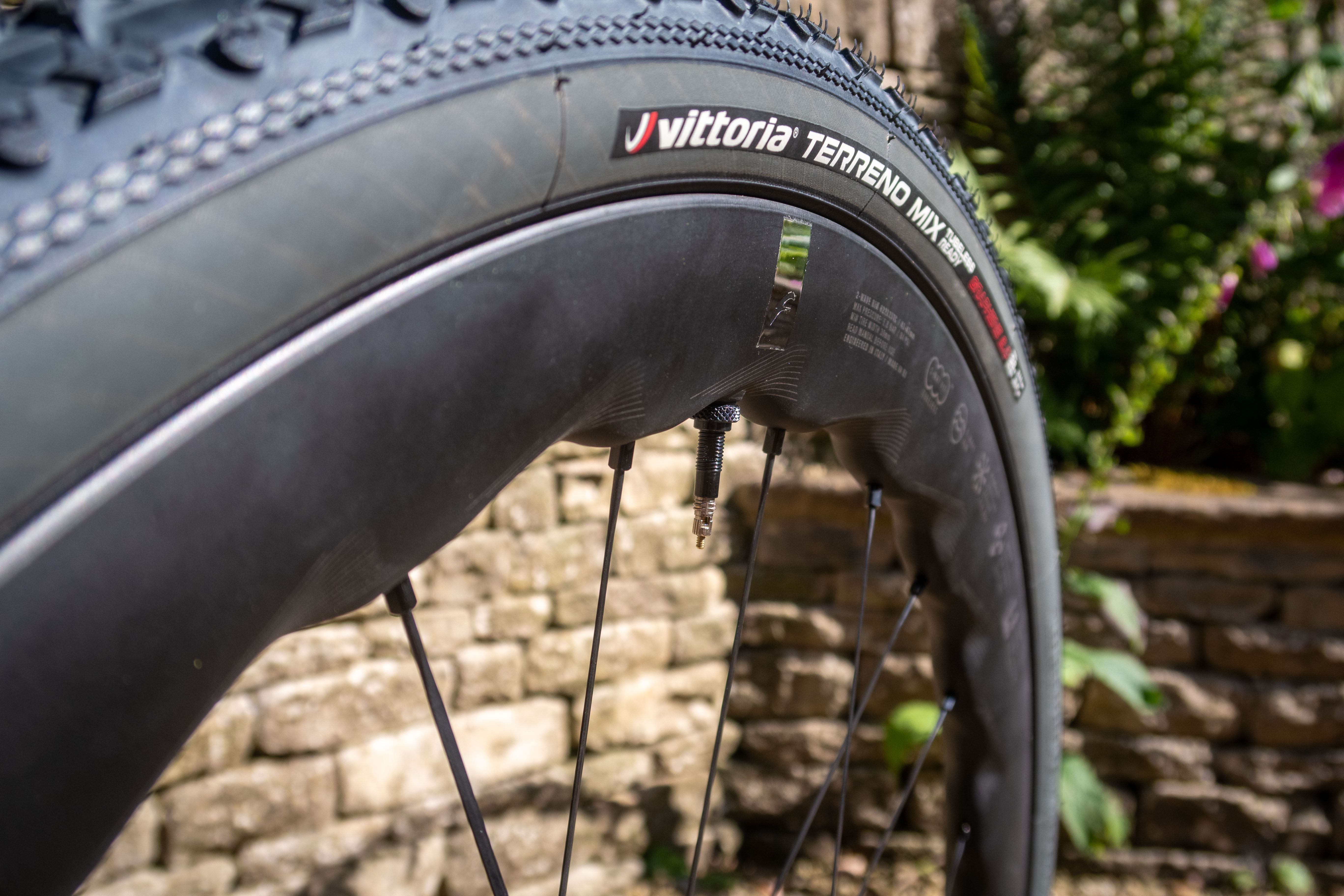
Their aero profile, relative light weight and good level of stiffness enable these wheels to spin up fast and keep rolling on flat roads, undulating terrain and moderate ascents - no doubt helped by the ceramic bearings. They’re not climbing wheels, but I didn’t ever feel that they were holding me back on steeper ascents, unlike the budget 1,750g alloy Miche Graff XL wheelset that came stock on my Jena.
I’m no track sprinter, nothing like, but my efforts at accelerating hard never unsettled the back wheel, nor did braking with conviction expose any sloppiness in the front. Leaning the wheels, when corning as fast as I dare, also failed to reveal any lack of torsional stiffness.
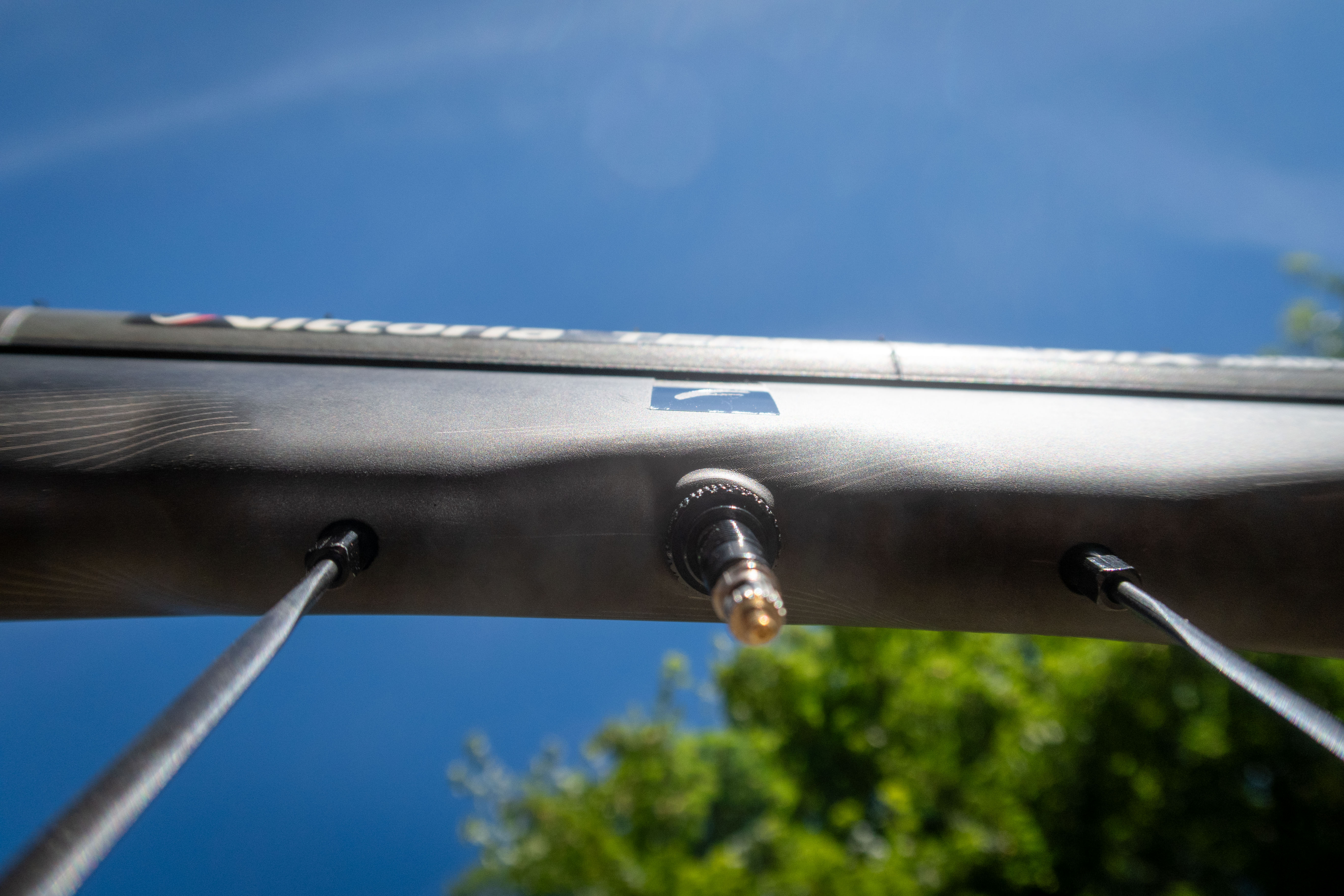
Much of my time with this wheelset was spent on weekend endurance rides in the picturesque Cotswold hills, pedalling long circuits on narrow rural lanes. However, in my first few weeks, with the 38mm Vittoria Terreno Mix tyres mounted, I did seek out some local gravel routes. Inevitably, my average speeds were considerably lower, but that did give me time to appreciate just how smooth these wheels feel over anything but properly rocky or rutted ground (where, frankly, nothing is going to feel cushy). Some of this feel, of course, is due to larger volume tyres running lower pressures, but even when I transitioned to the narrower Corsa Controls and tarmac, that silky feel remained with me.
I’m far too slow on gravel to appreciate any aero savings the Sharqs may have brought but Traka 360 legend (he’s won it three times) Mattia De Marchi isn’t. He placed fifth at Unbound 200 this year, riding a Basso Palta equipped with Fulcrum Sharq wheels. Another aero gravel wheelset that received much attention at that race was Zipp’s new 303 XPLR, with its massive headline-grabbing 32mm internal width rims. No doubt, the Zipp is a gravel monster, but for my money the Fulcrum Sharq is a more versatile beast, as competent on tarmac as it is on gravel.
Conclusion
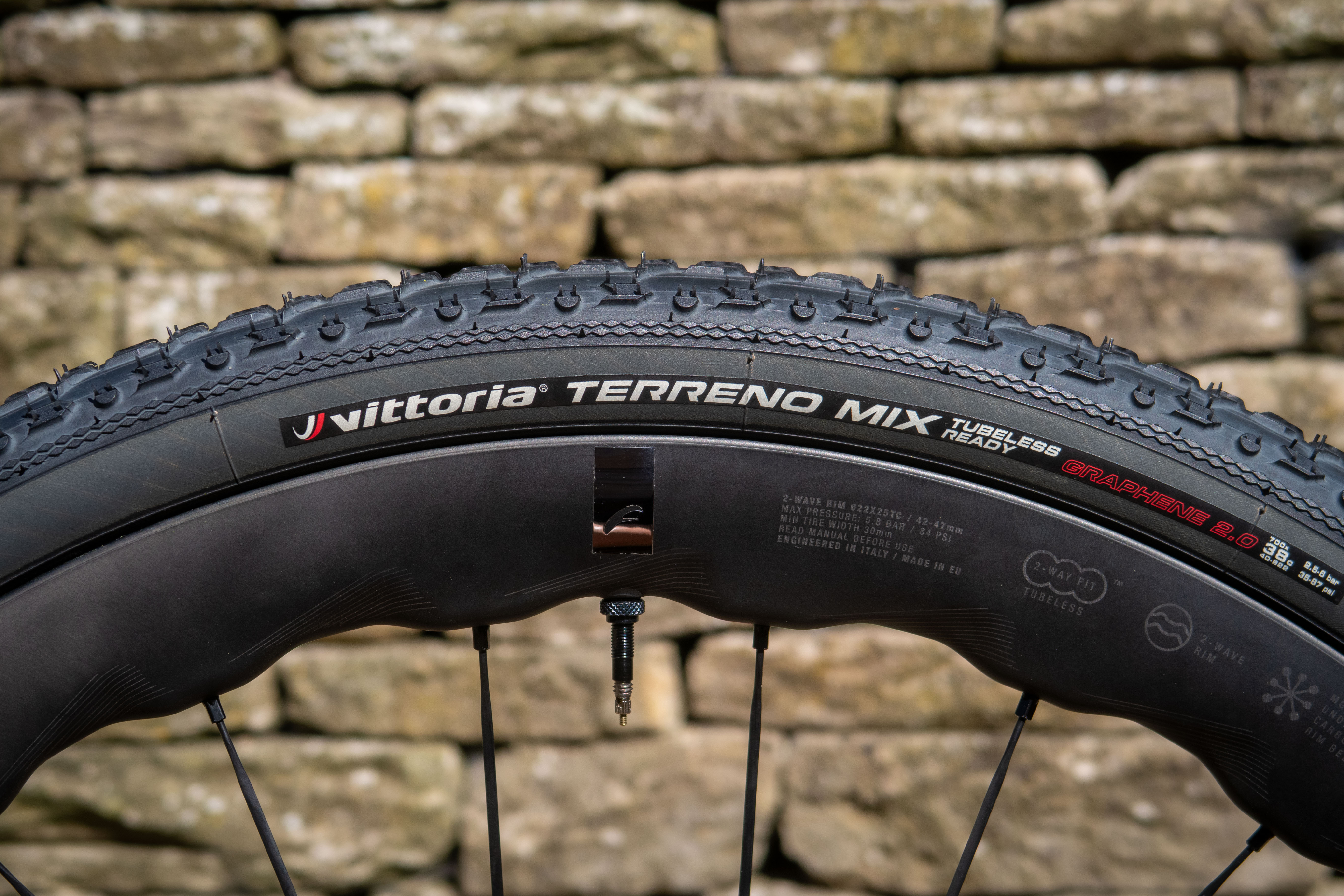
It’s easy to be charmed by the Sharq. This beautiful wheelset looks incredible on any gravel or all-road bike, and for some riders that will be reason enough to invest over two grand on a pair. Fortunately, their looks are matched by build quality and performance. In my experience, tubeless tyres mount with ease, they’re fast and responsive on almost any surface, and they excel in blustery conditions.
Specs
- Price: £2,289/$2,807
- Tyre Type: tube & tubeless
- Tyre Size: 28”
- ASTM Category 2
- Weight: 1,440g (quoted)
- Rim material: Full Carbon (FF100)
- Rim height: 42–47 mm wave
- Outer rim width: 29.8 mm
- Inner rim width: 25 mm - mini hook
- Braking system: Disc
- Front axle compatibility HH12-100
- Rear axle compatibility HH12-142
- Front-wheel spokes: 24, 2:1
- Rear-wheel spokes: 24, 2:1
- Spokes material: Stainless steel - Double butted
- Spokes profile: A3RO 0.8 × 3 mm, straight-pull
- Nipples: Aluminium, Self-locking
- Front Hub: Aluminium, Low flanges
- Rear Hub: Aluminium, Low flanges
- Bearings: USBTM ceramic, Adj. Cup & Cone bearing system
- Weight limit (system) 120 kg
- FWB Version: HG11, N3W, XDR, MS12







